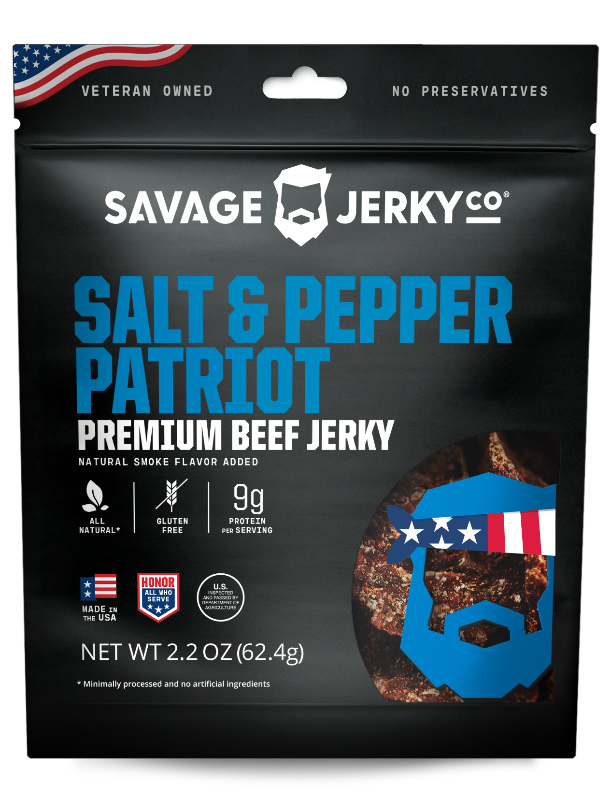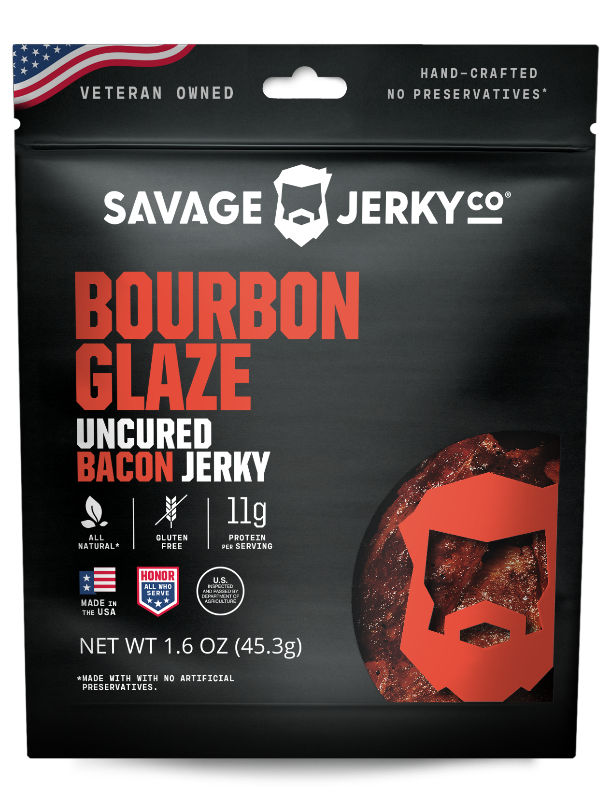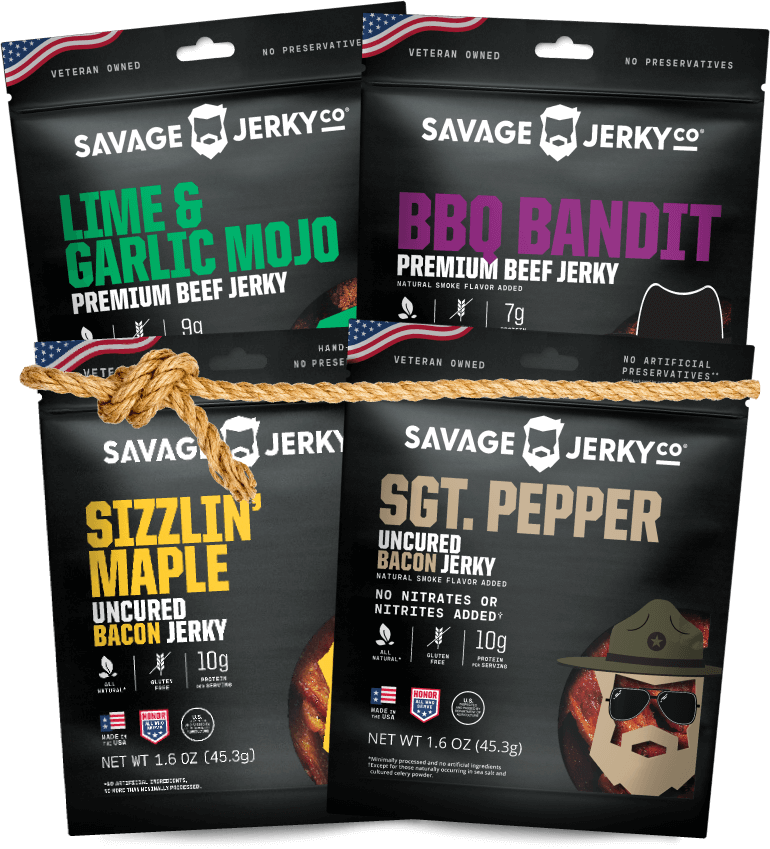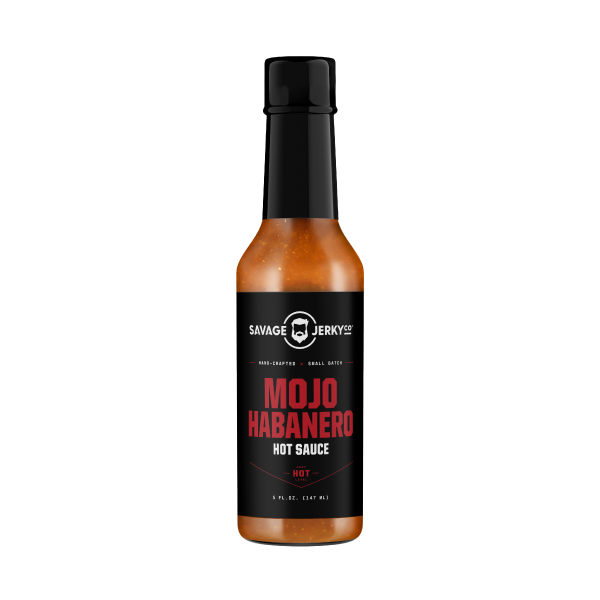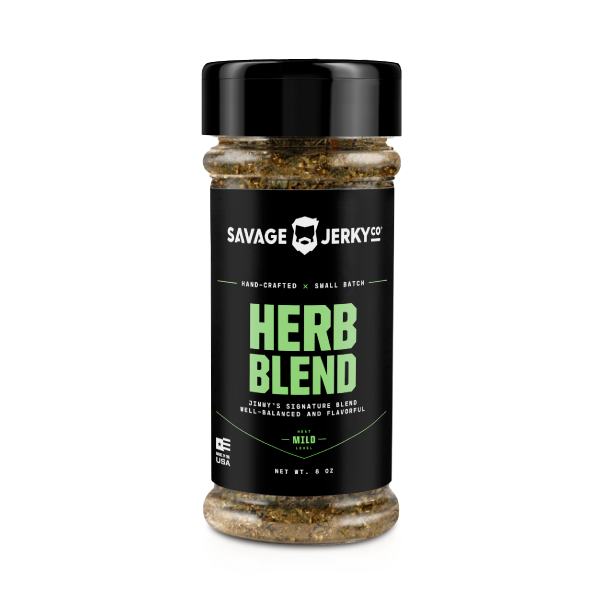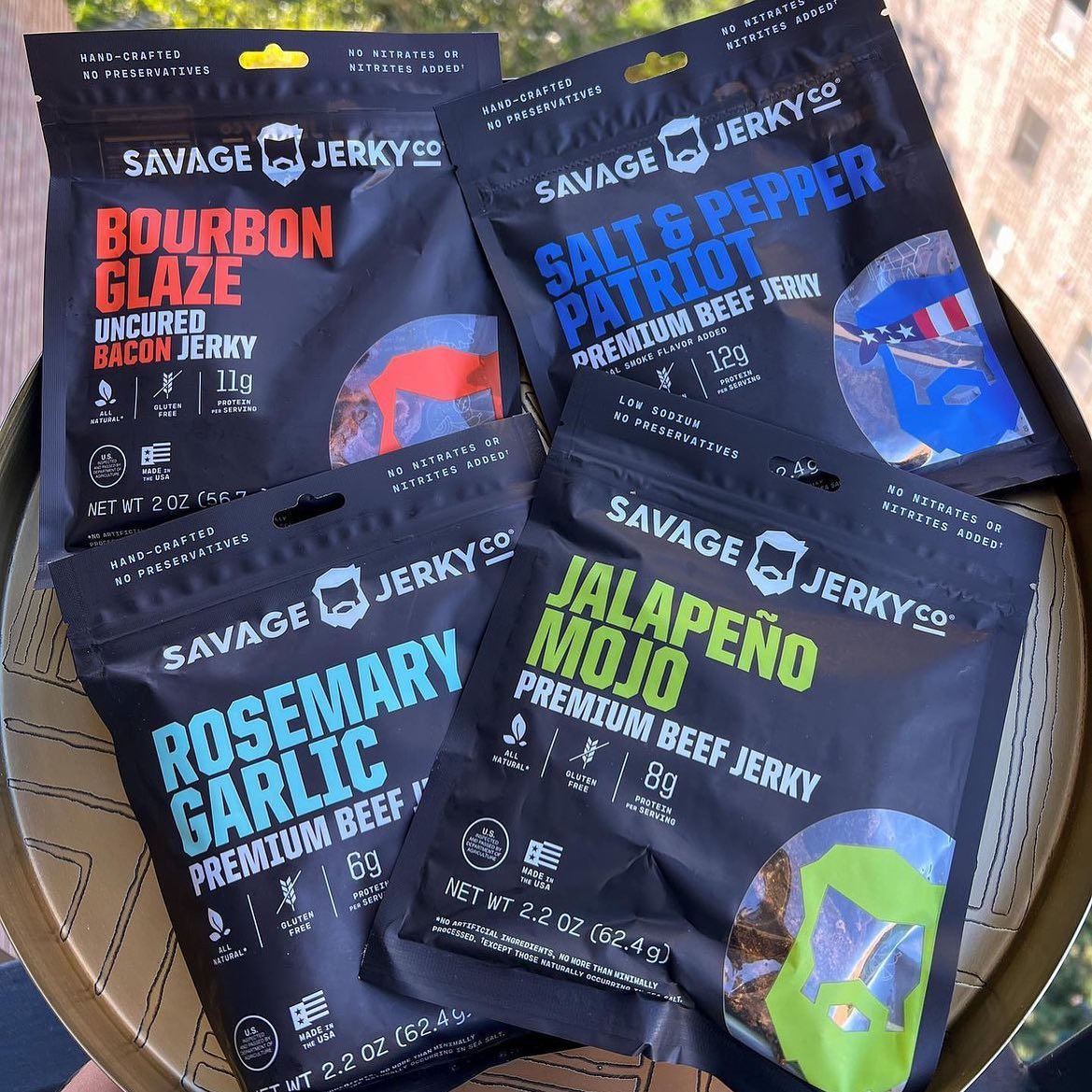Ever crave a very specific type of food out of nowhere? Sudden food cravings can be useful when trying to decide what to have for dinner. Some people even theorize that a food craving suggests your body is trying to tell you something. Why do we crave certain types of foods? What triggers a sudden craving for, say, Bold BBQ premium beef jerky?
Why are some foods, like beef jerky, so addictive?*
In this post, we'll unpack the science behind food cravings, plus offer tips for satisfying those cravings without overdoing it. Spoiler alert: Our beef jerky can be a healthy way to satisfy cravings for savory, spicy, salty and protein-rich foods. Read on for more.
Finding Meaning in Food Cravings
The literal meaning of cravings is a strong desire for something, usually food. Cravings can have bigger meanings, as scientists have discovered.
WebMD explains that food cravings originate in three different regions of the brain: the hippocampus, insula, and caudate. While these regions are responsible for regulating several different parts of your brain function, it’s notable that these parts are tied to memory and emotion.
In other words, high stress levels can impact cravings. However, this still does not explain why you tend to crave a very specific type of food.
(Craving comfort foods? Try chicken and dumplings with Savage Jerky herb blend.)
How Memory Affects Food Cravings
We mentioned that food cravings impact regions of your brain that are related to memory. Subconscious thoughts of being happy and de-stressed when eating a specific food may, in fact, cause you to crave that food again when you’re stressed. Your brain will associate that food with good feelings and happiness and crave that emotional regulation when you’re stressed.
Like that time you went snowboarding in Tahoe and you and your bestie shared a package of Tangy Habanero premium beef jerky. The quick-open snack warmed up your tastebuds enough to stave off hunger so you could do one more run down the slope.
Foods with high amounts of carbohydrates will boost the levels of the hormone serotonin, and help calm you down when stressed. Fats and sugars can have a similar effect. This is great for when you’re stressed, but not great for when you’re trying to watch what you eat.
Foods like chips, chocolate, and fries are all high in carbs and fats and are commonly associated with cravings. These “junk foods” don’t have a lot of nutritional value and should be consumed in moderation. So how do you curb your cravings?
A healthier option is a snack like beef jerky. As with all food cravings, moderation is key. Eat slowly, savoring every bite.
Tips for Reducing Cravings
We mentioned stress before as a cause of junk food cravings, but it’s worth noting that most unhealthy foods will make you want to consume more of them. The Cleveland Clinic refers to this as “food euphoria,” where sugar makes you want more sugar, and fat makes you want to eat more fat. This effect is very similar to behaviors noted with other addictive substances.
However, there are steps you can take to reduce the damage cravings may have on your health.
Replace unhealthy snacks
Replacing junk foods with healthier snacks can also be a good first step to reducing cravings. We recommend trying snacks like the Salt & Pepper Patriot Jerky that have low fat & carbs but 13g of protein. You may find that protein snacks can be an excellent substitute for junk food.
Get adequate sleep
Sleep, or rather lack thereof, can impact your cravings. When you’re sleep-deprived, appetite-suppressing and hunger-controlling hormones are affected, causing you to want to eat more and more.
Plan your meals and snacks
Regulating when you eat is also a great way to keep cravings at bay. When you have a cycle of eating the same junk foods at the same times every day, it’s difficult to make any meaningful changes. If you plan out your meals and ensure you’re getting enough good food during those times, you won’t have those same junk food cravings in between meals.
Address your stress, already!
Stress can be hard to get rid of entirely. However, identifying and eliminating whatever is causing stress in your life can do wonders for regulating and controlling your hunger levels. Think of it as treating the illness, rather than the symptom.
What if You’re Craving Protein?
We talked about fat, sugar, and carb cravings, but what if you’re craving meats or other sources of protein?
Firstly, it doesn’t necessarily mean you have an adverse medical condition. That said, when your body is trying to tell you something, you should probably listen. If you’re on a diet that restricts the amount of protein-rich foods you can eat, you should probably look for more sources of protein in your daily meals. Both Teriyaki and Ginger Lemongrass premium beef jerky treats from Savage Jerky have 12 to 13 grams of protein per serving (2 servings per bag).
It also might mean that your brain is stressed and that you’ve associated protein with positive feelings in the past. If you’re getting a healthy amount of protein in your diet and your meat cravings are persisting, you should probably consult your doctor about these issues.
Some meats like burgers and bacon can have high-fat content, so look for better balances between fat and protein. Greek yogurt and nuts/seeds have a surprising amount of protein in them. Certain beef jerky can also have health benefits for you, and they come in convenient packaging. If you want to learn more about this, we have an article discussing the health benefits of beef jerky.
*The information in this article and throughout the Savage Jerky website is for informational and educational purposes only, and should not be taken as professional medical advice.
